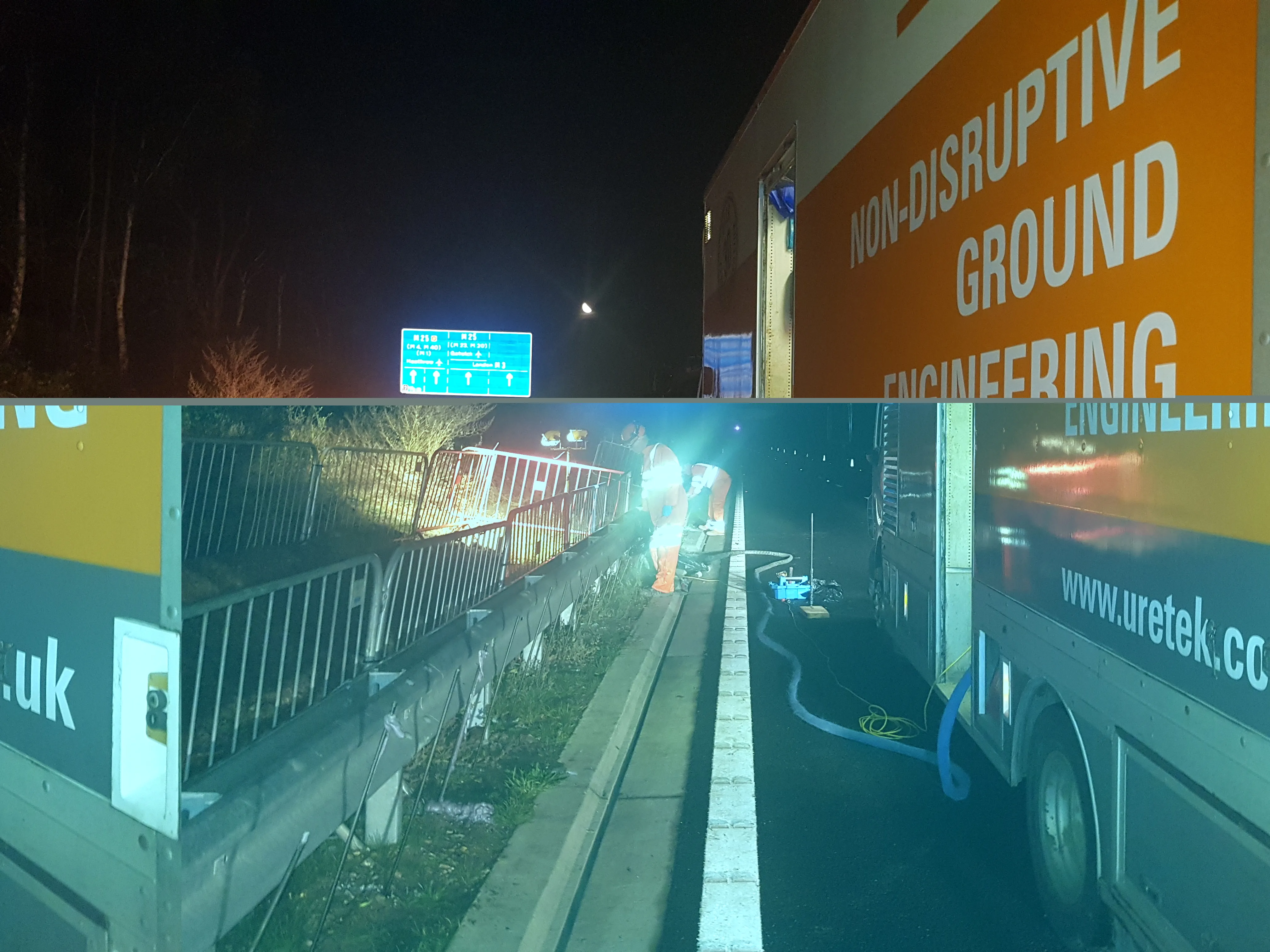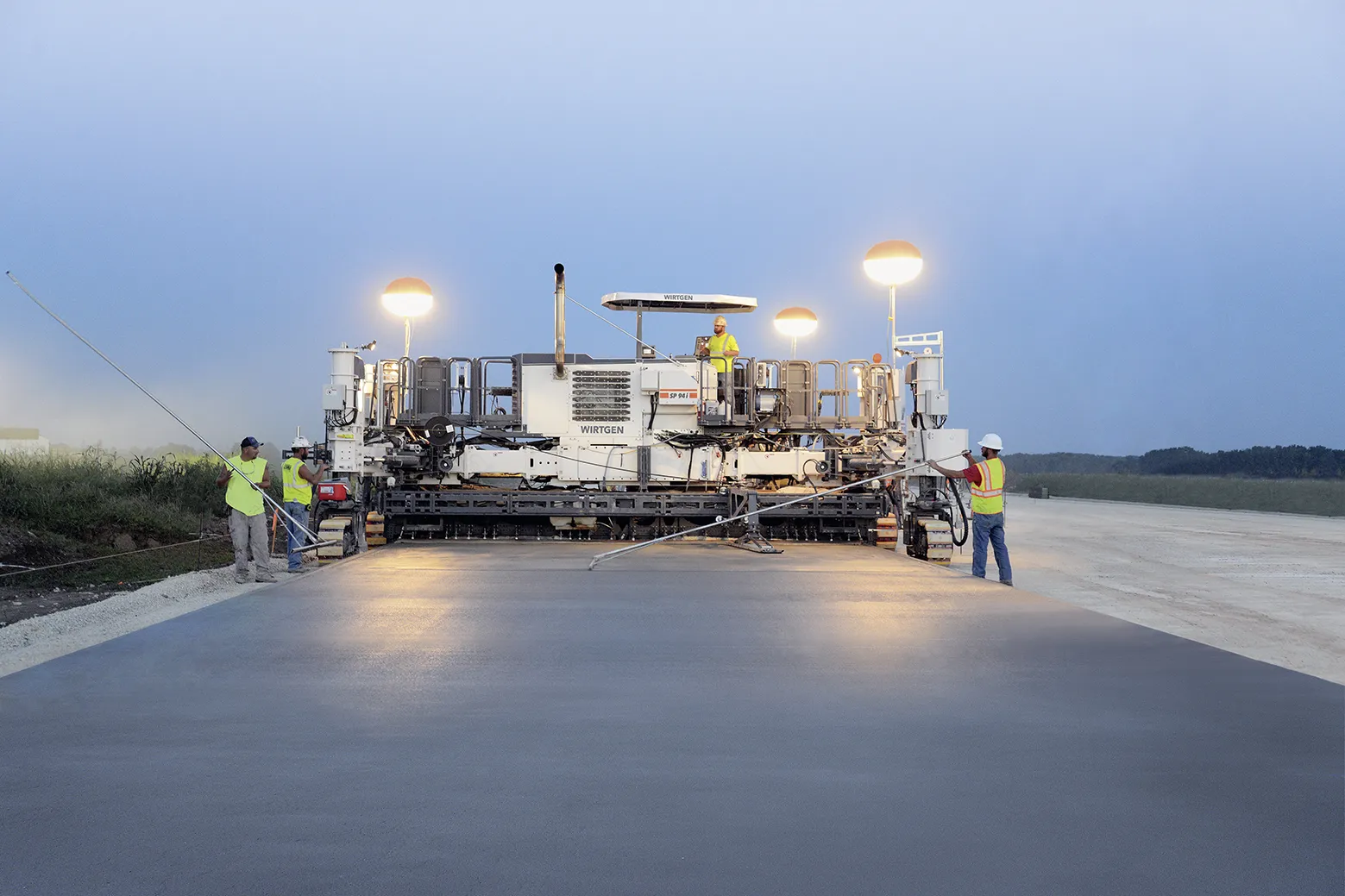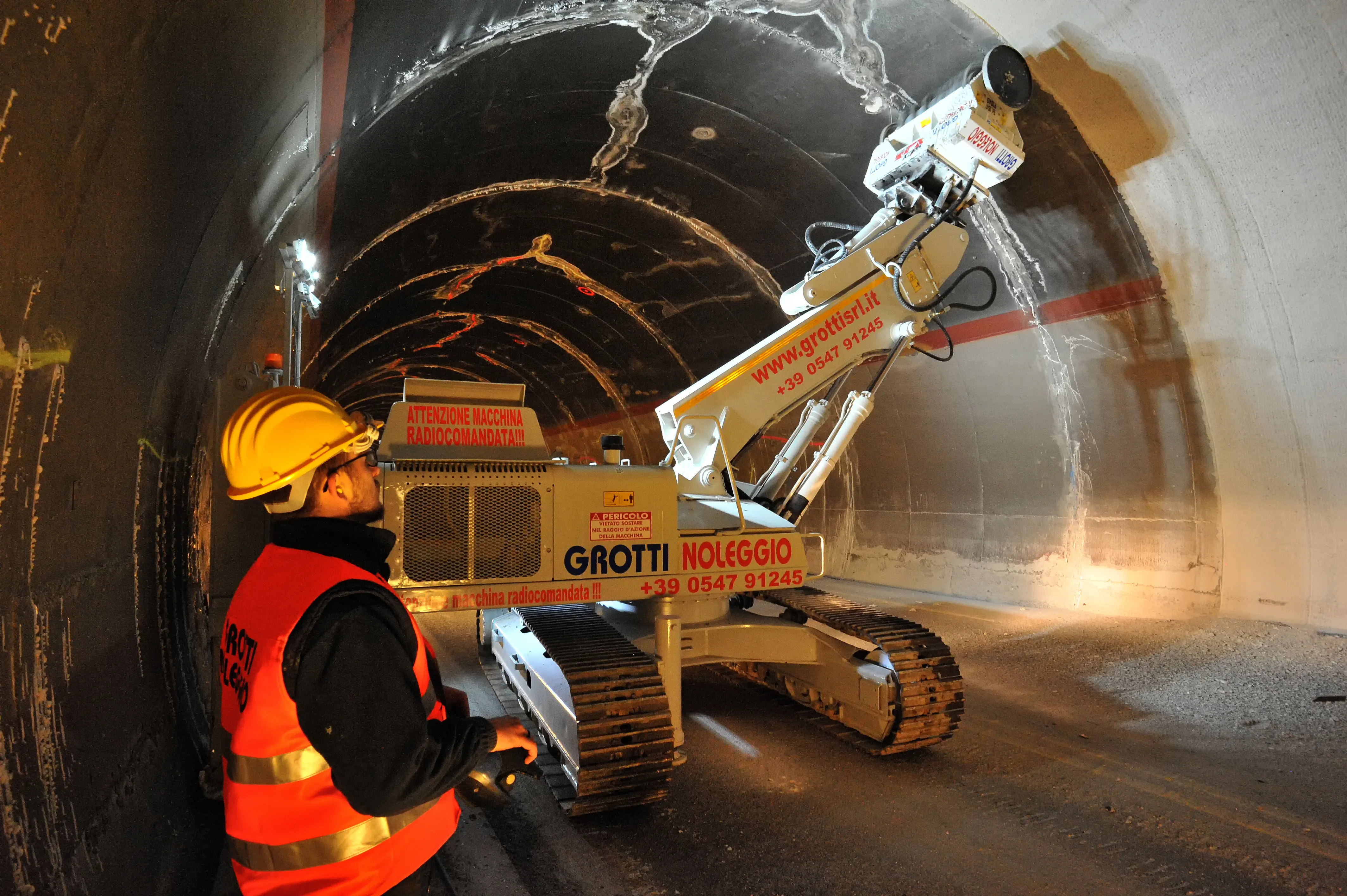
Work is between junctions 2 and 4a where Uretek has provided a non-disruptive alternative to conventional underpinning to solve foundation subsidence problems.
The focus for Uretek is an old 900mm corrugated pipe, 73m long. The old pipe has had a new 700mm pipe inserted inside. However, the old pipe is rusting and rapidly deteriorating.
In order to protect the structural integrity of the old pipe and prevent localised ground collapses at the side of the motorway, Uretek is treating voided soils with polyurethane resin around and above the laid pipes from the ground level downwards. It is doing this with two rows of injections - one from either side of the installed pipe to ensure full coverage.
Treatment depth varies across the area from 1.35-2.6m below ground level, depending on the depth of the pipe.
The contract on behalf of
“Not only do we stabilise the soils, but we fill the expansive voiding surrounding sub-surface service lines, meaning future surface maintenance won’t be compromised,” explained Richard Holmes, managing director of Uretek. “The recyclable nature of the geopolymer being used is not only safe for the environment, but is safe for removal should access to the void be required.”
Uretek UK is a wholly-owned contracting subsidiary of Uretek Worldwide that operates in over 50 countries. Its geopolymer technology has been used for many infrastructure sectors including airport runways, railways, and for everything from foundation re-levelling and ground stabilisation to simple void filling and water sealing.







